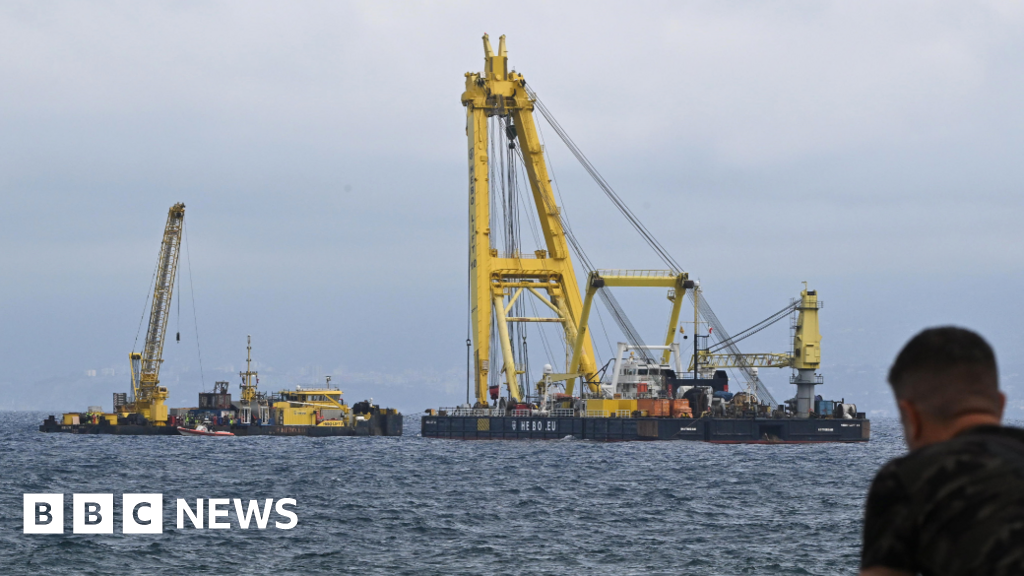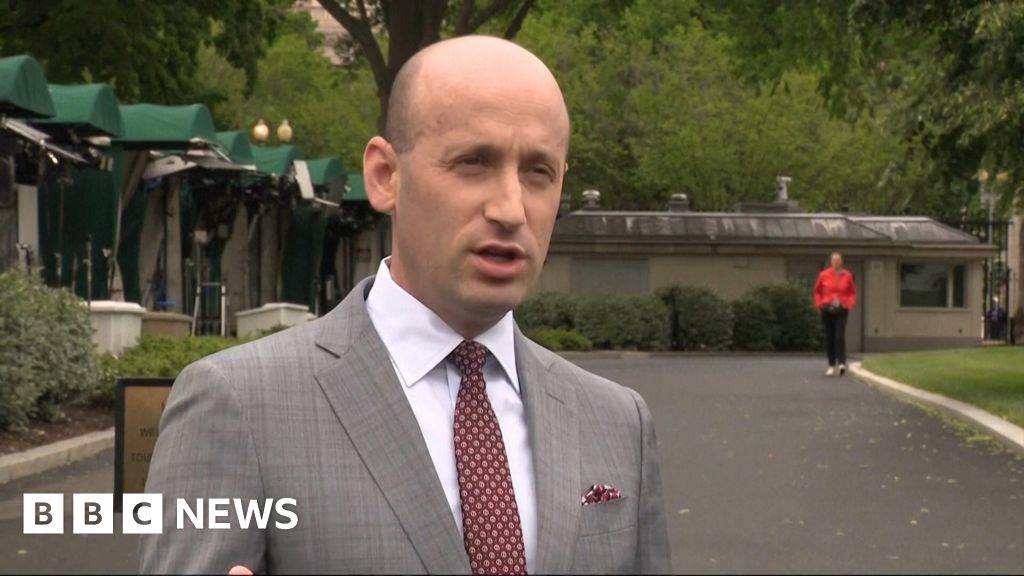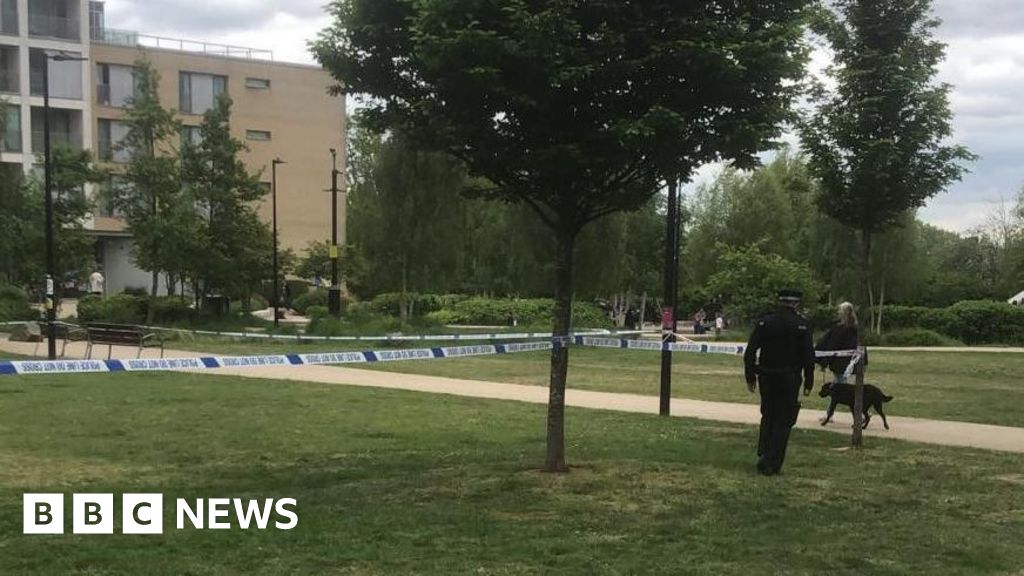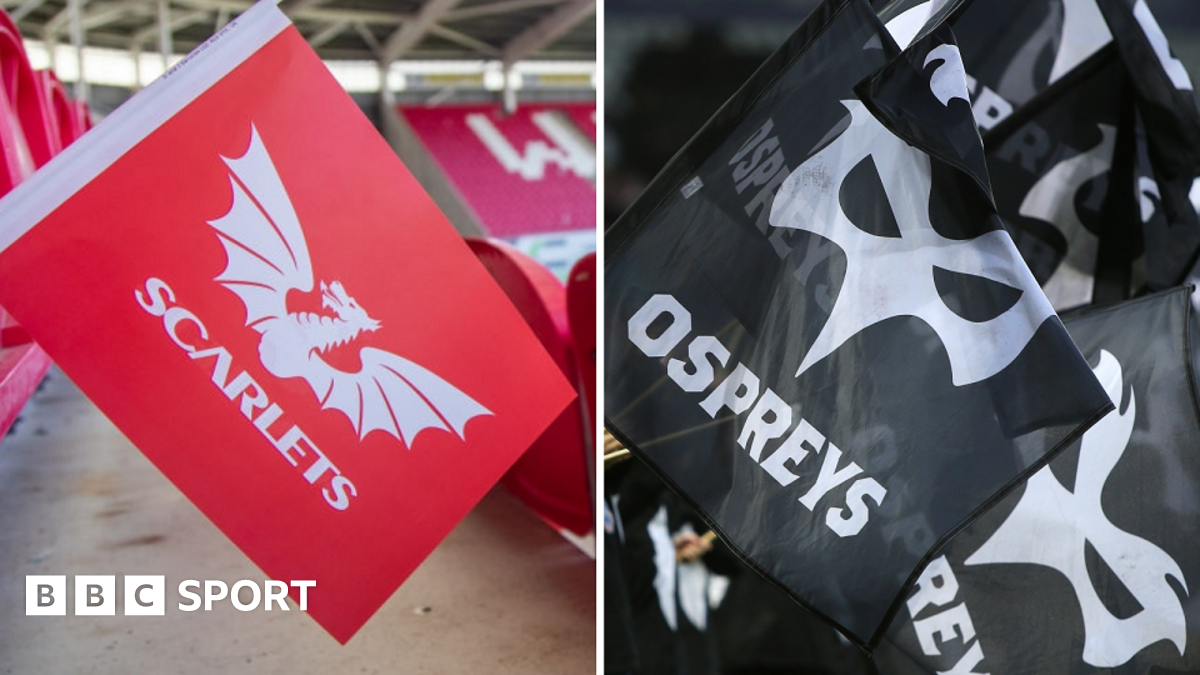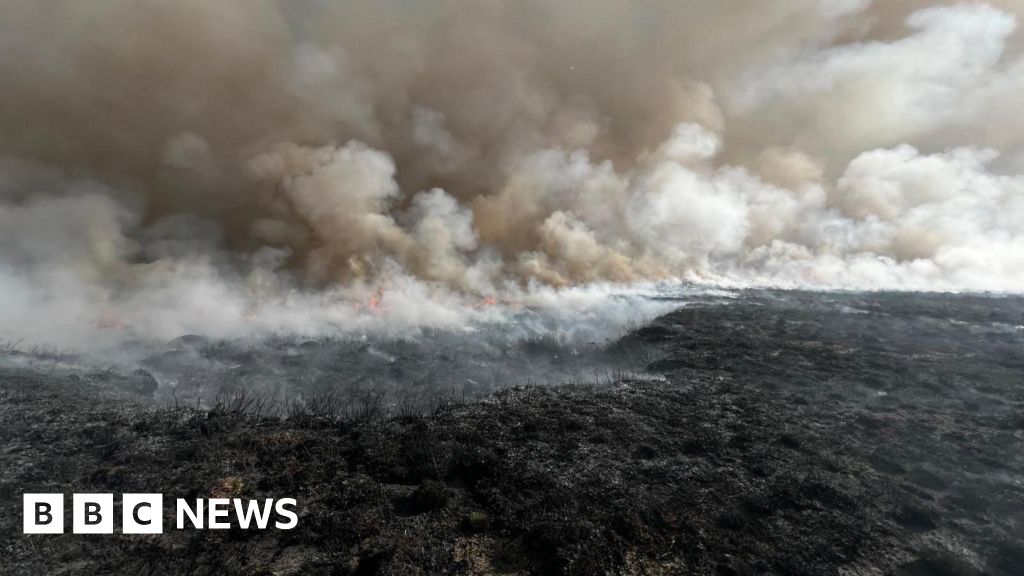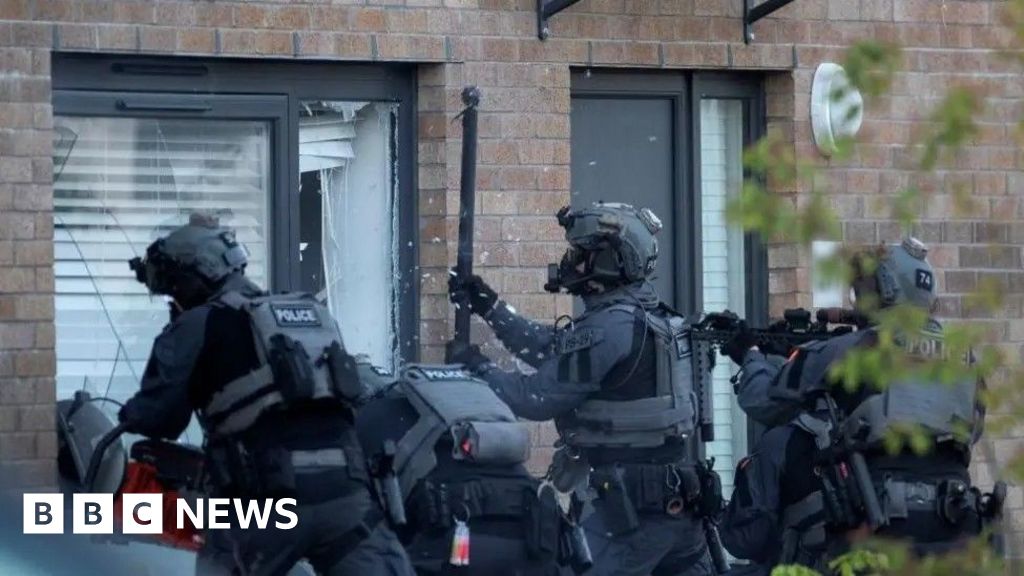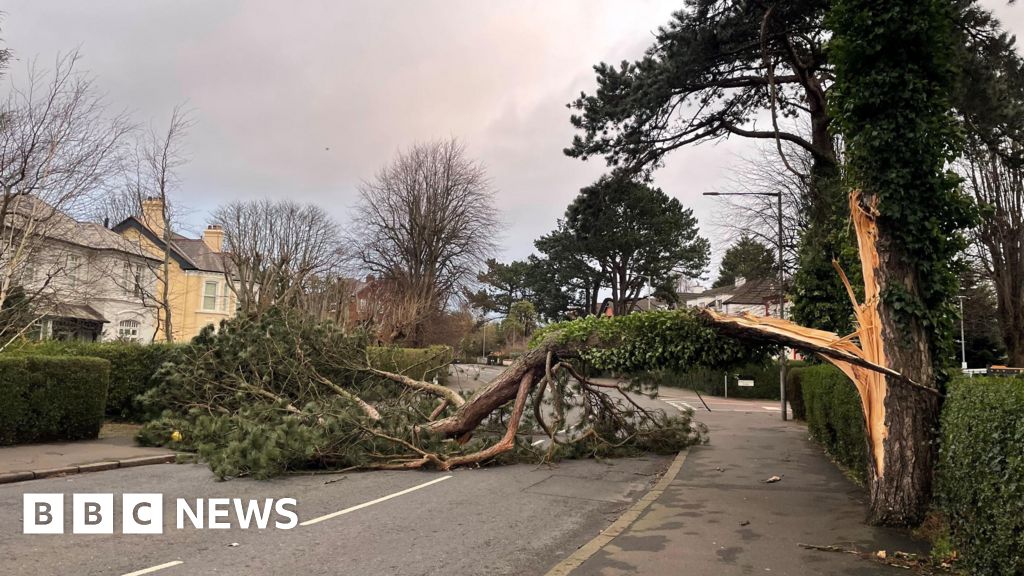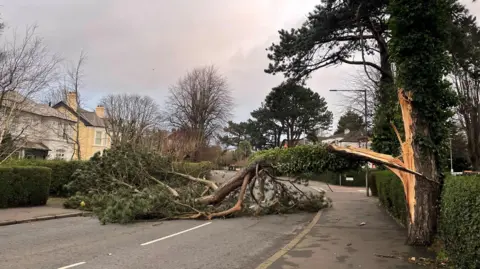 PA Media
PA MediaStorm Éowyn has begun battering Northern Ireland, bringing with it winds of more than 90mph and leaving 93,000 homes and businesses without power.
Northern Ireland has seen the highest gust in 27 years.
Red warnings are in place in both Northern Ireland and the Republic of Ireland for the first time.
Schools, colleges and universities are closed and most hospital appointments have been cancelled as significant disruption is expected as a result of the storm.
The rare red weather warning will be in effect across Northern Ireland until 14:00 GMT.
Along with wind warnings until midnight, a snow and ice warning has also been issued across Northern Ireland from 19:00 on Friday – 10:00 on Saturday.
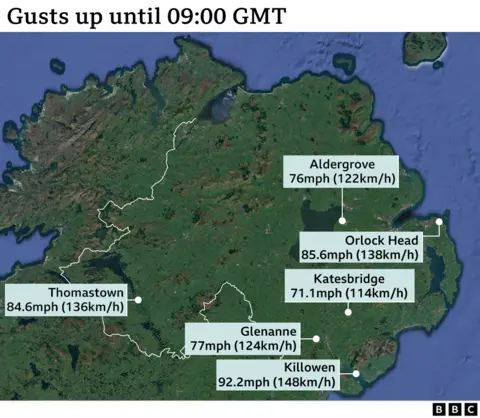
- Follow our live page for the latest developments on Storm Éowyn.
The strongest gust of wind recorded in Northern Ireland until 9:00 GMT on Friday was 92.2mph (148km/h) at Killowen in County Down.
That is the strongest gust since 93mph (150km/h) was recorded at Ballykelly in County Londonderry on Boxing Day in 1998.
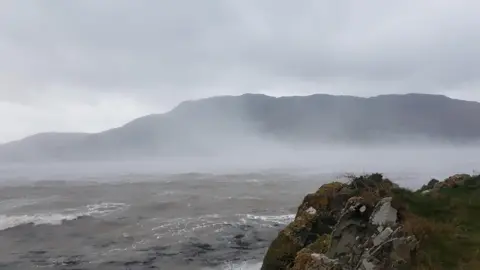 Weather Watcher Matt
Weather Watcher MattThe Met Office has said there is a danger to life and political leaders have urged people to stay at home.
A number of businesses, including supermarkets Lidl, Tesco and Sainsbury’s, are also closed in light of the severe winds.
Public transport service provider Translink has cancelled all bus and train services during the red alert.
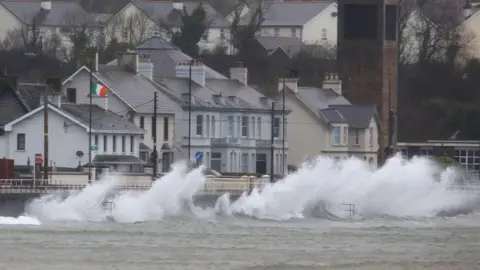 Getty Images
Getty ImagesAn area of Northland Crescent in Londonderry has been cordoned off on Friday morning after a wall collapsed.
Extensive damage has been caused to one vehicle with the boot and side of the vehicle badly damaged.
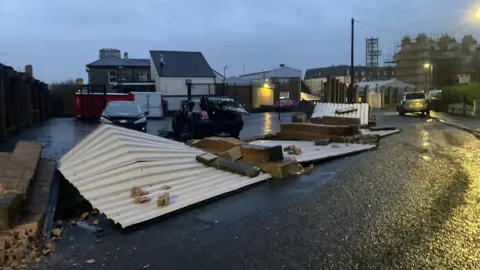
The roof of Bangor Aurora leisure centre has also been damaged.
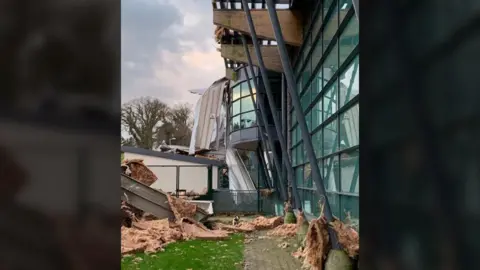 @_nod____
@_nod____In Coalisland, in County Tyrone, many trees have blocked roads and the roof of one bungalow has been torn off in the wind.
In the Republic of Ireland, there are more than 715,000 properties without power.
Provisional new records for wind speed have been recorded in the Republic Ireland, with hurricane-force sustained winds of 85 mph (137 km/h) at Mace Head, County Galway.
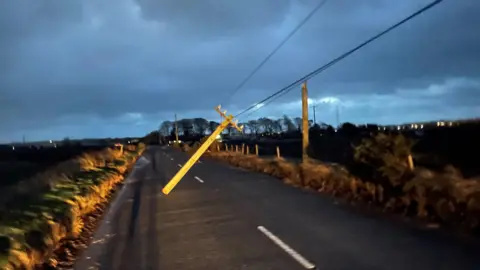 PA Media
PA MediaIn Northern Ireland the strongest gusts have been recorded in Kilowen, County Down at just over 92mph (148km/h).
The record for Northern Ireland is 124mph which was recorded at Kilkeel in 1974.
What is the advice?
The Police Service of Northern Ireland (PSNI) has advised members of the public to take all necessary precautions to keep themselves safe and not travel.
The PSNI issued the following advice:
- Ensure your devices are charged
- Ensure you have emergency lighting such as torches easily accessible in the event of power cuts
- Have ready access to additional blankets or sources of warmth in the event your heating supply is disrupted
- Make checks with your vulnerable family, friends and neighbours to ensure they have adequate provisions in place if carers and so on cannot reach them
- In an emergency call 999
 PA
PAOn Thursday, First Minister Michelle O’Neill advised people to work from home and avoid unnecessary travel.
She added that she wanted to emphasise that a red warning was very serious and was only used when there was a genuine threat to life.
Deputy First Minister Emma Little-Pengelly added that people should stay inside where possible.
Education Minister Paul Givan said he understood the closure of schools would affect pupils and businesses but the decision had been taken “to avoid any potential risk to life for children and young people as well as staff”.
The UK government issued the “largest real life use to date” of its Emergency Alert system, notifying about 4.5 million people of severe weather in Northern Ireland and parts of Scotland.
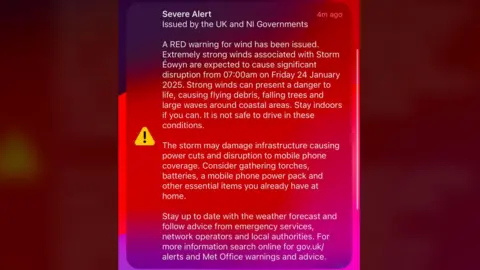
Have flights been cancelled?
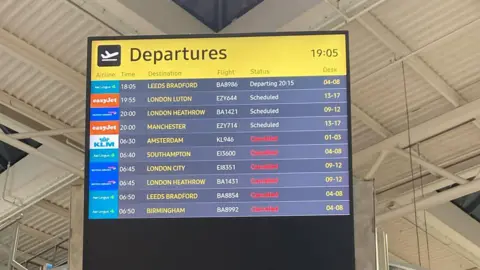
A number of flights from Belfast City Airport have been cancelled, while Belfast International Airport and City of Derry Airport have also warned people to expect delays and cancellations.
Dublin Airport said there could be “some disruption” to Friday’s flight schedule and that passengers should contact their airline directly for updates.
P&O has announced ferry cancellations between Larne and Cairnryan from 04:00 to noon and Stena Line services between Ireland and Great Britain are also severely disrupted.
Ireland West Airport in County Mayo will be closed until 13:00.
Hospital appointments
Four of Northern Ireland’s health trusts are advising that all appointments are cancelled, or should be considered cancelled, unless you have been contacted specifically to say otherwise.
The South Eastern, Belfast, Western and Northern health trusts all said this included red flag cancer referrals and all scheduled appointments, with “significant disruption” expected.
The exception is emergency departments and care, which will be operating as normal.
The Southern Health Trust says all outpatient appointments and all elective surgery, including red flag and urgent, are cancelled.
Storm Éowyn weather forecast
Storm Éowyn is the fifth named storm of the season. It has been caused by powerful jet stream winds pushing low pressure towards the UK and Ireland over the Atlantic Ocean after a recent cold spell over North America.
Red is the most serious weather warning the Met Office can issue, meaning dangerous weather is expected and people are urged to take action to keep themselves and others safe.
It is the first time a red weather warning has been issued for Northern Ireland since an impact-based system was introduced in 2011.
Winds are expected to rapidly increase on Friday morning with peak gusts of 80-90 mph (130-145 km/h) and possibly up to 100mph along some exposed coasts.
Further amber and yellow warnings will remain in place on Friday.
There are other warnings across parts of the United Kingdom.
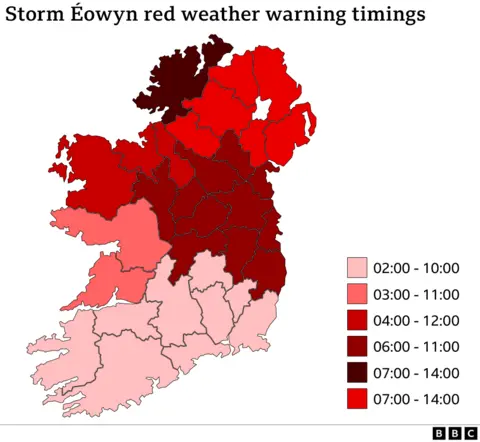
Emergency contacts
To report faults or emergencies you should contact:
- Northern Ireland Housing Executive: 03448 920 901
- Openreach: 08000 23 20 23
- Gas networks: 0800 002001
- NI Water: 03457 44 00 88 or visit niwater.com
- Flooding Incident Line: 0300 2000 100
- NIE Networks: 03457 643 643 or visit nienetworks.co.uk





